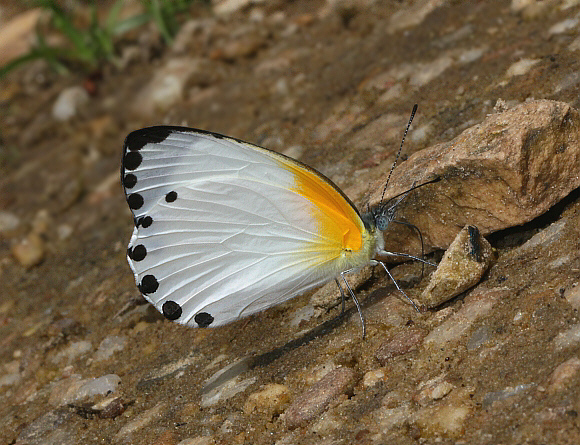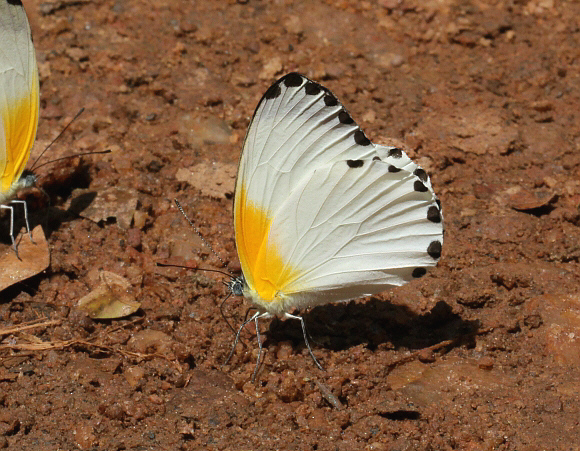
Introduction
The genus Mylothris is confined to the African continent and includes 51 species, most of which are distributed across the forest belt from Cameroon to western Kenya.
Mylothris species share a number of characteristics: They have rounded wings with a black apex on the upperside forewings. On the underside, fore and hindwings of most species have a single row of prominent black marginal spots, hence the butterflies in this genus are all known as Dotted Borders.
Experiments by Swynnerton have shown that Mylothris are unpalatable to birds, and the fact that their colour and pattern is mimicked by several palatable genera including Belenois, Appias and Dixeia suggests that Mylothris are aposematic.
Mylothris poppea is distributed from Guinea to Togo. An almost identical species rhodope is found in the same part of Africa, and also occurs south to Angola, Zambia and western Uganda.
Habitats
This species is found along logging roads and other semi-open areas of rainforest, and also occurs in lower numbers in riparian forest and thickets.
Lifecycle
The caterpillars feed gregariously on Loranthus (Loranthaceae).
Adult behaviour
Both sexes are attracted to herbaceous flowers and flowering bushes, at which they nectar with the wings held half open or fluttering. Males are also attracted to mineralised moisture around the edges of puddles on forest tracks, and can be found singly or in small groups, aggregating with Appias, Graphium and Eurema species.
The flight is slow and deliberate, and in conjunction with the conspicuous appearance is indicative of the fact (supported by experiment) that the butterflies are distasteful to avian predators. It is likely that the toxins within their bodies are derived from the larval foodplants.

